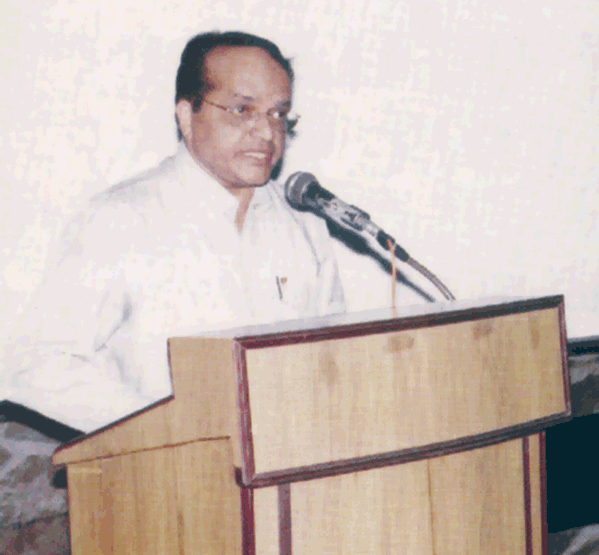iving an added thrust to
the
undergraduate and
postgraduate education in
colleges and universities is a
priority of the University
Grants Commission in its
Golden Jubilee
Year and the
subsequent Plan period.
The exhortation from Dr. A.P.J. Abdul Kalam the President of
India on the concluding function of the Golden Jubilee Year Celebrations on 28th December and the
11-point action plan the President suggested are clear roadmaps for improving the quality and
relevance of the higher education system of the country. Announcement of 1000 UGC Swarna Jayanti
Postgraduate Scholarships of Rs. 2000/-p.m. to meritorious students for undertaking postgraduate
education in conventional subjects of humanities, social sciences, languages and basic sciences,
by Dr. Murli Manohar Joshi is a great gesture from the Government for encouraging the general
education in colleges and universities. Attracting the best students to these basic disciplines
is the need of the hour. There are several schemes for promotion of talents in professional areas.
The UGC is also supporting post-graduate education in engineering and technology by providing
scholarships. Fellowship schemes for Ph.D. research and schemes for undertaking research by
teachers in the universities and colleges are also existing. Only when bright motivated students
opt for post-graduation in conventional subjects in universities and colleges, the various
research fellowship schemes as well as the induction to the teaching positions can be successfully
executed. High quality students can be attracted to teaching and research positions only by
improving the quality of the postgraduate teaching and by providing encouragement and incentives
to bright students. The launching of this scheme coupled with the action suggested by the
President for persuading banks and industries to come forward with financial supports to
students in colleges will be a major step in this direction.
The MHRD has recently approved the scheme of Professor of Eminence in the university system to
recognize and reward outstanding professors who have contributed significantly to teaching, research and higher education development. This scheme will be operated through UGC for the general education system and through AICTE for the technical education system. Directly recruited professors with 10 years regular service, having Ph.D or equivalent, and 28 years of service |
as a teacher in the university or in an equivalent position, are eligible for consideration. Those who are selected under this scheme will be placed in a super time scale of pay of Rs. 22000-24500 and admissible allowances.
No permanent position will be created for the purpose of recognizing Professor of Eminence in the institutions. They shall continue to perform such duties relating to teaching and research as assigned by the respective Institutes. Higher scale of pay under this scheme shall be personal to the individual concerned. The incremental cost associated with the position of Professor of Eminence shall be borne by the institution where the Professor of Eminence is serving. The procedure of application involves 3 levels selection, first by the institution concerned, then by the UGC and at the final level by a National Committee constituted by MHRD. The scheme will be operative from 2004 onwards.
The decision of the University Grants Commission to meet the expenditure of the accreditation of the 6000 affiliated colleges in the country is a firm step towards quality assurance of the courses. Meeting the accreditation fee of Rs.50,000/- per college and the peer team visit and other expenditure which amounts to an average total of Rs.1.5 lakhs was a problem for several aided and government colleges. This difficulty had in fact delayed the colleges in approaching NAAC for assessment and accreditation. The UGC has now decided that hereafter the accreditation fee and expenditure towards peer team visit will be disbursed to NAAC in respect of the colleges which are undergoing assessment and accreditation. This will facilitate the quality evaluation, benchmarking and quality upgradation of thousands of colleges which come under 2(f) and 12(B) of the UGC Act. Earlier this benefit was given only to the universities. Considering the vastness of the country and the mammoth size of the higher education system, the magnitude of these 3 schemes may not be very high. However, these recognitions and incentives will boost the morale and spirit of the millions of students, lakhs of teachers and thousands of colleges in the conventional streams of university education in this country. These steps of MHRD on the occasion of Golden Jubilee of the UGC deserve appreciation.
Prof. V. N. Rajasekharan Pillai,
Vice-Chairman, UGC & Editor
31st January, 2004
|


